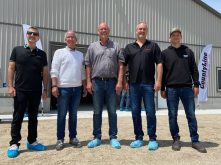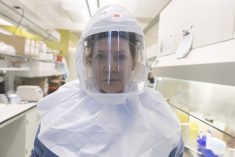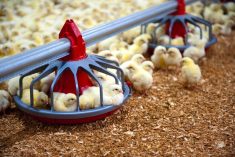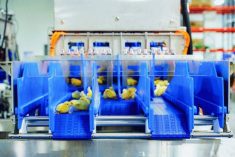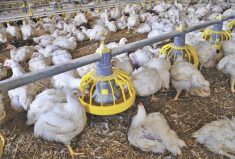Avian metapneumovirus (aMPV) is the most recent poultry virus confirmed in Canada, with outbreaks reported on Ontario and Manitoba turkey farms.
Commonly known as turkey viral rhinotracheitis in turkeys and swollen head syndrome in chickens, aMPV is highly contagious and can spread between all poultry species. As of July 15, the World Organization for Animal Health has reported 44 cases in Ontario.
Why it matters: Contagious viruses are challenging in poultry because birds are kept together in barns. Biosecurity is critical to avoid infection.
aMPV is not considered a zoonotic disease, and a spokesperson for the Ontario Ministry of Agriculture, Food and Agribusiness (OMAFA) confirms it is not a food safety issue or a human health concern.
Read Also
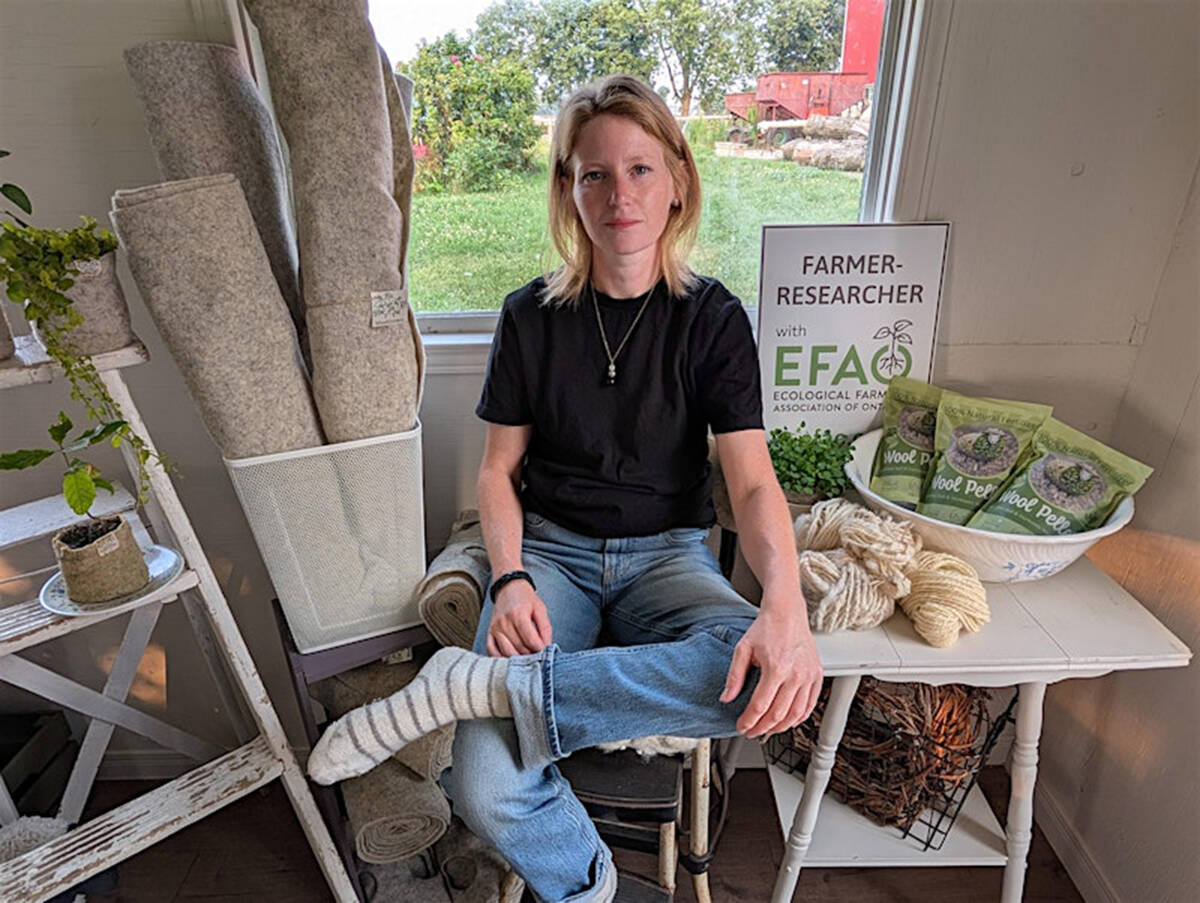
From fleece to fertile ground
Lindsey Weber turns Canadian wool into sustainable, biodegradable weed suppression and horticulture alternatives to plastic, boosting farm sustainability and revitalizing Canada’s wool industry.
A government veterinary advisory said the virus has four subtypes named A, B, C and D. Subtype C has previously been detected in Ontario in wild bird populations, and Ontario has seen outbreaks of aMPV-B and mixed A+B since May 2024 in commercial turkey, broilers and layer birds.
These strains have also been reported in the United States in recent months. Many wild bird species are natural reservoirs.
Clinical signs are primarily seen in the upper respiratory tract and high death rates are possible. Symptoms can be confused with other poultry diseases like bronchitis and avian influenza. aMPV is transmitted through nasal discharge from affected and recovering birds or directly from contaminated surfaces. Spread between premises has been linked to poultry density, hygiene and biosecurity standards.
OMAFA said there are no commercial vaccines available for use in Canada or the United States, and because aMPV is a viral disease, there is no specific treatment other than treating secondary infections. In Ontario, it is a reportable disease and veterinarians are required to immediately notify both the Canadian Food Inspection Agency and the province.
Turkey Farmers of Canada said it is monitoring the impacts on turkey farms and working with veterinarians and other national poultry groups.
“Canadian turkey farmers are committed to biosecurity and disease prevention, as highlighted through the ongoing highly pathogenic avian influenza event and as aMPV emerged as a risk, especially with a number of states in the United States experiencing outbreaks starting earlier this year,” the group stated.
Ontario’s Feather Board Command Centre has also been working with industry organizations and stakeholders to monitor the outbreak. It said there are no active control programs yet.
For now, the best defence against aMPV is strong biosecurity and rigorous cleaning and disinfection between poultry flocks, said an OMAFA spokesperson, who added that the virus is susceptible to a wide range of common disinfectants.
The feather board encouraged farmers to reinforce biosecurity protocols and seek assistance if they suspect a flock may be infected.
For more information, visit the Ontario Animal Health Network (oahn.ca) or the Canadian Food Inspection Agency (inspection.canada.ca).





